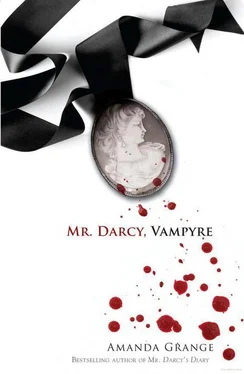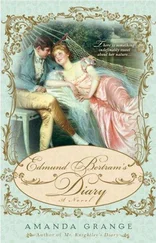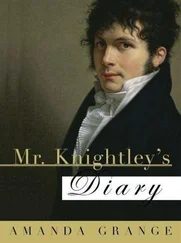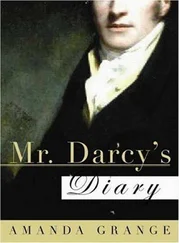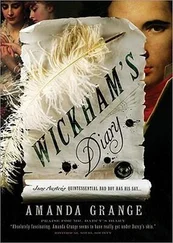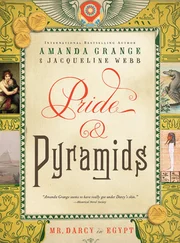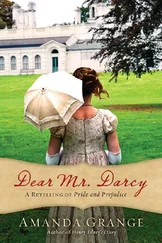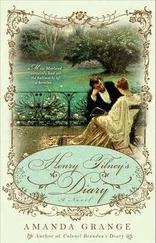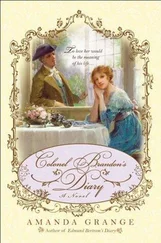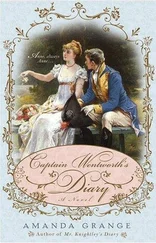‘So you are Elizabeth,’ she said. ‘You must be very special to have won Darcy’s affections. I never thought he would marry. The news has taken many of us by surprise.’ She looked at Elizabeth and then at Darcy and then back again. Her expression was thoughtful. Then she bowed slightly to Elizabeth with a small incline of her head before wishing them joy of her salon.
‘You will find many old friends here and some new ones, too,’ she said to Darcy.
Darcy and Elizabeth moved on into the large drawing room so that Mme Rousel could greet her next guests.
Darcy was at once welcomed by four women who walked up to him with lithe movements and lingering glances. Their dresses were rainbow hued, in the colours of gems, and flimsy, like all the Parisian dresses. Their hair was dark and their skin was pallid.
‘You will have to be careful,’ came a voice at Elizabeth’s shoulder.
She turned to see a man with fine features and tousled hair. He had an air of boredom about him, and although Elizabeth did not usually like those who were easily bored, there was something strangely magnetic about him. His ennui gave his mouth a sulky turn which was undeniably attractive.
‘They will take him from you if they can,’ the man continued, watching them all the while.
Elizabeth turned to look at them, and as she did so, she was reminded of Caroline Bingley and her constant efforts to catch Darcy’s attention. He had been impervious to Caroline and he was impervious to the Parisian women as well, for all their efforts to enrapture him. As they talked and smiled and leant against him, flicking imaginary specks of dust from his coat and picking imaginary hairs from his sleeve, they looked at him surreptitiously. When they saw that he was oblivious to their attempts to captivate him, they redoubled their efforts, one of them whispering in his ear, another leaning close to his face, and the other two walking, arm in arm, in front of him, in order to display their figures.
‘It is not right, what they do there, he being so newly married,’ said a woman, coming up and standing beside the two of them. ‘But forgive me, I was forgetting, we have not been introduced. I am Katrine du Bois, and that is my brother, Philippe.’
There was an air of warmth about the woman which was missing from many of the salon guests, and Elizabeth sensed in her a friend. And yet there was something melancholy about her, as though she had suffered a great disappointment from which she had never recovered.
‘It is not right, no,’ said Philippe. ‘But it is nature. What can one do?’
He turned to look at Elizabeth with sympathy but Elizabeth was only amused.
‘Poor things!’ she said.
Darcy wore the same expression he had worn when she had first seen him at the Meryton assembly; and despite the difference in the two events, the noisy vulgarity of the assembly and the refined elegance of the salon, he was still above his company. His dark hair was set off by his white linen and his well-moulded face, even in such company, was handsome. His dark eyes wandered restlessly over his companions until they came to rest on Elizabeth. And then his face relaxed into softer lines, full of warmth and love.
‘I wish a man would look at me the way that Darcy looks at you,’ said Katrine.
‘I am very lucky,’ said Elizabeth, and she knew that she was.
She had not married for wealth or position; she had married for love. She wished that she was not in company, that she and Darcy had stayed at the inn where they could have been alone, but she knew they would not be in Paris forever. The calls and engagements would come to an end and then they would have more time to spend, just the two of them, together.
‘You are,’ said Katrine. ‘I have many things; I have jewels and clothes, carriages and horses, a fine house and finer furnishings, but I would give them all for one such look.’
Darcy’s companions claimed his attention and he turned reluctantly away. As he did so, his hand moved to his chest as though he were lifting something beneath his shirt, pulling it away from his chest and then letting it drop again.
‘What is it he does there?’ asked Katrine. ‘Does he wear something round his neck?’
‘Yes, I bought him a crucifix yesterday. The shops in Paris are very tempting,’ said Elizabeth. ‘He refused to take it at first, but he had given me so much and I had given him so little that I insisted, and at last he allowed me to fasten it around his neck.’
Katrine’s voice was reverent. ‘He must love you very much,’ she said.
‘Yes, I believe he does,’ said Elizabeth.
‘And now, we have talked of Mr Darcy for long enough,’ said Philippe. ‘Any more and I will grow jealous. I will pay you out by talking of our hostess’s many perfections. Do you not think she is beautiful?’ he asked, casting his own longing look in her direction.
‘She seems charming,’ said Elizabeth.
‘Yes, she is, very charming,’ he said with warmth.
‘But does she always receive people whilst reclining on a sofa?’ asked Elizabeth, unable to suppress her mirth.
‘Ah, you find it amusing,’ he said, seeing the humour in her eyes. ‘And so it is, an amusing affectation. Our great hostesses all like to have them. Do your hostesses at home not like to make an effect?’
‘I cannot say; I rarely go into society,’ said Elizabeth, ‘or at least not this sort of society, and no one in Meryton would dress in such a way or spend the evening lying on a sofa unless they were ill!’
‘Your husband does not take you to the London salons then?’ asked Philippe. ‘I was certain he would do so.’
‘I hardly know where he takes me—or perhaps I should say, where he will take me. He has only been my husband for a week.’
‘Ah, yes of course. Being so newly married you will have better things to do with your time than to go to salons,’ said Philippe, raising his eyebrows.
Elizabeth, much to her surprise, blushed, and Katrine, seeing it, said, ‘Take no notice of my brother.’ She tapped his arm reprovingly with her fan. ‘He is very French; he does not understand the English idea of good taste. He thinks of nothing but the pleasures of the flesh, and he has no reticence in him.’
‘ Ma soeur! You wrong me,’ he said, pretending to be wounded. ‘What impression of me will you give to la belle Elizabeth?’ Then turning to Elizabeth he said, ‘I think of many things, of my horses and carriages, my friends and family, of art and music… see, I will prove it to you. I will take you to meet our resident genius, and you shall see how I listen to him with rapture in my eyes!’
He offered her his arm with such an air of gallantry that she could not refuse, and he led her to the other side of the room, where a young man was starting to play the piano. He was surrounded by a devoted coterie of women who leaned over the instrument or stood adoringly by his side.
He was very handsome in the French fashion, with a high brow, sleek hair, and pronounced features. He played with exquisite taste, his fingers running over the keys more quickly than seemed possible, blending the notes in a strange and rippling liquidity. It flowed out from his fingers and into the room, filling the space with the hypnotic melody.
‘I have brought someone to meet you,’ said Philippe.
He introduced Elizabeth to the three women leaning across the piano and then to the pianist, Monsieur Huilot, ‘a young musical genius.’
Monsieur Huilot took the compliment gracefully, never once breaking off from his hypnotic melodies, and asked Elizabeth if she enjoyed music. When she answered that she did, he said, ‘That is good. Music feeds the soul, and the soul, it needs feeding.’
Читать дальше
